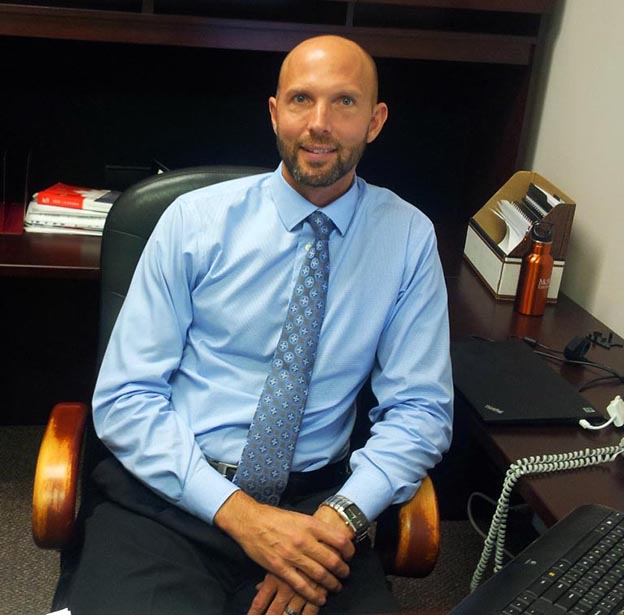In conversation with McMaster’s new AVP, Students and Learning

Sean Van Koughnett, McMaster’s new associate vice-president, Students and Learning and Dean of Students talks about his personal connection to the student journey, how sometimes it’s hard to tell the difference between “success” and “failure” – and why it’s important to stay in the game.
“When one door closes, others will open for you – if you put yourself out there,” says Sean Van Koughnett, McMaster’s new associate vice-president, Students and Learning. Also appointed Dean of Students, Van Koughnett (pronounced “Van Koo-nett”) spoke about his personal connection to the student journey, how sometimes it’s hard to tell the difference between “success” and “failure” – and why it’s important to stay in the game.
How do you see your new role here at McMaster?
There’s an increasing recognition that “learning” takes place not only in the classroom and in coursework, but also during all the activities a student takes part in. That’s where my role comes in. The AVP, Students and Learning portfolio oversees the student experience from recruitment to registration and financial aid, from enrolment services to residence life, athletics and recreation, and the Student Success Centre. Even my title reflects this. By adding the words “and learning,” we’ve emphasized that everything in the student’s journey here is about learning.
Your own career as a university administrator reflects this kind of ongoing learning, doesn’t it?
Yes, I began my career as a fundraiser, I became an assistant registrar, then I ran a business unit, started a program for student entrepreneurs called VeloCity, and most recently launched and ran a student success centre. When we talk about lifelong learning, we often associate that with taking a course. That’s great, too, but part of the reason I accepted this role was for the learning opportunity – to learn about a new institution and take on new challenges. Any time you can expand your expertise, that will keep you motivated and growing.
At a recent campus event, you brought a basketball as an object that represented “success” to you.
Some of us were asked to kick off the IRIS Student Success Performance Cycle with our own story about success. My object was a basketball, and my story was about how I tried out for Team Canada before the 2000 Sydney Olympics, after being out of the program for five years. I was almost 30. I had trained hard for about 14 months before the try-out and I played the best basketball of my life – but I didn’t make the team. I was the last player to be cut. My point is to not fear failure, to put yourself out there. A year later, I was invited to join the national team for an exhibition tour, so I did wear the Canadian uniform again – and basketball is still a big part of my life today. Although I “failed” to make the team in 2000, it was not a failure at all.
That story definitely relates to a student’s university experience.
Exactly. When students arrive here, maybe they have their mind set on a certain profession or a specific goal. However, after the first or second year, perhaps it looks like it’s not going to work out, for whatever reason. That doesn’t mean they’ve failed. It means there are a different set of goals they have to look at and pursue. When one door closes, others will open for you – if you put yourself out there. Two of my kids are about to attend university and another is already in college. I’ve got a small sample size, a direct line to what students are experiencing!
What are your priorities, going forward?
For now, I need to learn as much as I can about McMaster, so I can help make informed decisions about where to go next. Some common themes have already emerged from my initial discussions. We’re already doing a good job of addressing our students’ mental health needs and that’s going to continue to be a focus for us. Another priority is to provide support for students’ career and professional development. Again, there are a lot of good things going on in the Faculties and at the Student Success Centre. My role is to take all these pieces of the puzzle and make sure they’re fitting together well.


